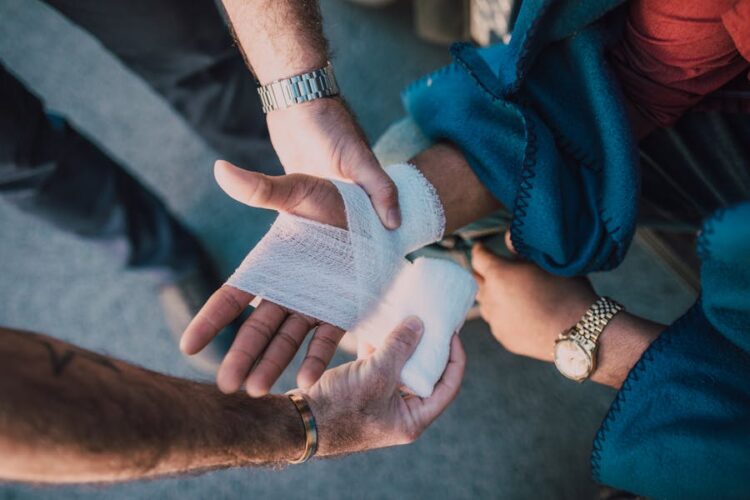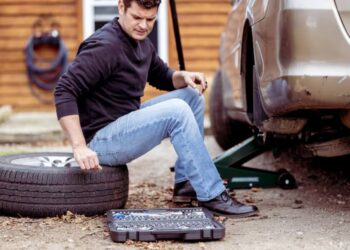If you’ve been injured due to someone else’s negligence, you’re definitely thinking of filing a personal injury claim. However, suffering the injuries is not enough to win your case since you have to prove that the other person was at fault. This is called negligence, and it can be the foundation of many personal injury cases.
It can be challenging to prove negligence, as there are some key elements that you must show. Every element is important and is used to determine the outcome of your case. In this blog post, we will break down these elements to help you establish negligence and strengthen your claim.
1. Duty of Care
The first thing that you need to prove is that the other person owed you a duty of care. In legal terms, a duty of care means that someone has a responsibility to avoid causing harm to others. For example, drivers have a duty of care to follow traffic laws to keep others safe on the road. A property owner also has a duty to keep their premises safe for visitors. A doctor, on the other hand, has a duty to provide appropriate medical care to their patients.
The duty of care is fairly obvious in a personal injury claim process. However, the specific duty owed depends on the situation. You’ll need to show that the person responsible for your injury was in a position where they were expected to act with care towards you if you want to prove this element.
2. Breach of Duty
After you’ve established duty of care, you now have to prove that it was breached. This means the other person didn’t act the way a reasonable person should have in the same situation. To prove this, you need to show that their actions or lack of actions fell below the standard of care.
For example, a driver who is texting while driving is breaching their duty to drive safely. Also, a doctor who fails to diagnose an illness that should have been caught is breaching their duty to provide proper medical care. During your case, the law or court will ask” what would a responsible person do in this situation?”
If the answer is different from what the defendant did, they breached their duty. To prove breach of duty, you’ll need evidence. You can use things like surveillance footage, photos of the accident scene, or expert testimony. A skilled attorney from Carr & Carr Injury Attorneys can help you gather this evidence and build your case.
3. Causation
Once you’ve proven that the other party breached their duty, you need to show that this breach caused your injury. This is called causation. You must prove that the other person’s actions directly led to your harm. Causation has two parts, namely actual cause and proximate cause. In the actual cause, you must show that your injury wouldn’t have happened with the other party’s actions. For example, if a driver had not run a red light, you wouldn’t have been hit and injured.
For proximate cause, you must demonstrate that the harm you suffered was a foreseeable result of the other party’s actions. For example, it’s foreseeable that running a red light could cause a car accident and injure someone. However, proving causation can be challenging. For instance, if you had a pre-existing condition, the other side might argue that your injuries were not caused by the accident. In such cases, medical records and expert testimony are essential to prove that the accident directly caused your accident.
4. Damages
The final element that you need to win against negligence is proving damages. Damages refer to the losses you have suffered because of the injury. This includes both economic damages like medical bills and lost wages, non-economic damages like pain and suffering.
Even if the other party was negligent, you must show that their actions caused you actual harm. Without proof of damages, you won’t have a personal injury claim. To prove damages, gather all medical records, bills, and any other evidence that shows how much you’ve lost financially.
While non-economic damages might be difficult to prove, you can use personal testimonies, therapy records, or expert evaluations. If you can clearly demonstrate the financial and emotional toll of your injury, you’ll strengthen your case and increase the likelihood of getting fair compensation.
Common Defenses to Negligence Claims
When you file a personal injury claim based on negligence, the defendant may use different defenses to refute your case. These defenses aim to reduce or eliminate their liability for your injuries. Understanding these defenses is crucial because they can significantly affect the outcome of your case. Two of the most common defenses are:
- Contributory Negligence
This is a defense used when the defendant argues that you were partly at fault for the accident. In this situation, they claim that your own actions contributed to your injury in some way. For example, if you were injured in a car crash but were speeding or not wearing a seatbelt, the defendant may argue that you share some blame for your injuries.
The impact of your contributory negligence will depend on the laws in your state. Some states follow the strict pure contributory negligence rule. Under this rule, if you’re found to be even at 1% fault for the accident, you cannot be compensated. Other states follow the comparative negligence rule which is more lenient. There are two types of comparative negligence, namely;
- Pure comparative negligence: Here, you can recover compensation even if you were mostly at fault for the accident. Nowever, your compensation will be reduced by your percentage of fault.
- Modified comparative negligence: In this rule, you can recover damages only if you were less than 50% or 51% at fault. If your fault exceeds this threshold, you cannot recover any compensation.
- Assumption of Risk
Another common defense is assumption of risk. This defense argues that you knowingly and voluntarily accepted the risks associated with a certain activity and as a result, cannot hold the defendant fully responsible for your injuries. For example, if you were injured while skydiving or participating in a contact sport, the defendant may argue that you assumed the risks involved in such activities. To use this defense, the defendant must prove two things:
- You knew about the risk involved in the activity
- You voluntarily accepted that risk by participating
There are two types of assumption of risk:
- Express assumption of risk: This occurs when you sign a waiver or agreement acknowledging the potential risks before participating.
- Implied assumption of risk: In some cases, the assumption of risk is implied by your actions. For instance, if you attend a baseball game and get hit by a foul ball, it could be argued that you assumed the risk of getting hit by attending the game.
The success of these defenses can dramatically impact the outcome of your personal injury claim by:
- Reducing your compensation
- Completely barring you from recovering any compensation at all
- Adding legal complexities to your case, thus requiring that you present stronger counterarguments.
Endnote
You must prove all the four elements of negligence if you want to win your personal injury claim case. Each one of these elements builds upon the next and missing one can weaken your case. This is why having clear evidence and a well-prepared argument is critical. If you have been injured due to someone else’s negligence, don’t hesitate to seek legal help. An experienced attorney can guide you through the process, gather the necessary evidence, and ensure that you get the compensation you deserve.










